The word “Society” has been officially re-added and re-introduced into the Catholic Extension title and logo after a brief hiatus. “Society” has always been part of our legal name, but it was dropped from our logo for the purpose of brevity.
Now “Society” is back in. See below how our logo has changed several times since our founding in 1905:
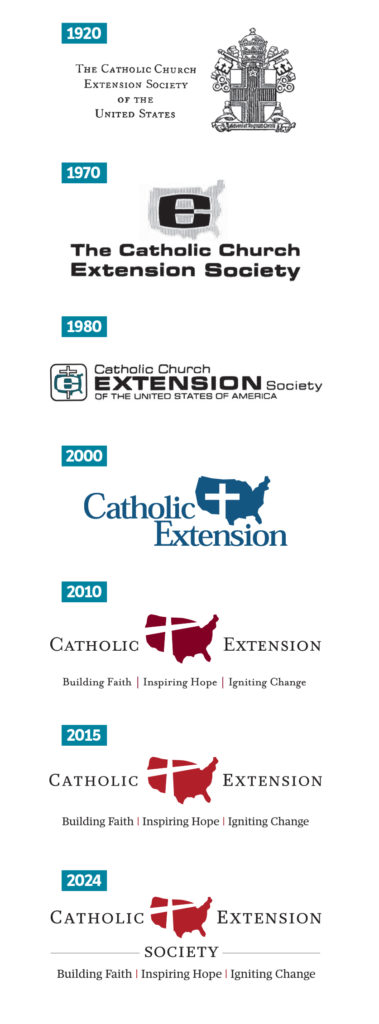
The noun “Society” automatically turns “Catholic” and “Extension” into adjectives.
Every noun is lonesome for adjectives. Adjectives are servants. They dress up nouns, lending them qualities, distinction and focus. A world in which nouns go without their adjectives would be a poorer and duller world. Titles matter, and so do the adjectives that serve them.
So what kind of “society” are we talking about? The answer is that we are a society that extends. And we are a society that extends in uniquely Catholic ways.
Thus, we are “Catholic Extension Society.”
Why Then, A “Society”?
A “society” is a voluntary association of individuals with common beliefs or interests that bind us together and move us toward action. A society is different from a club. There are no stringent membership requirements that distinguish who is in from who is out.
We are a society made so by our common beliefs and our common purpose so that together we can achieve something.
What kind of society are we? We are not just any society. We are a society that believes in “extension.”
When we extend ourselves to see suffering, we are moved to action. Matthew 25 describes Jesus’ foundational belief in the concept of extension, namely, “Whatever you do for the least of my people, you do for me.”
Connectivity activates our empathy. A society of “extension” believes we must go to the peripheries, such as the fields below where migrant farmworkers help to put food on our tables, to bring those most counted out to the center of our consciousness.
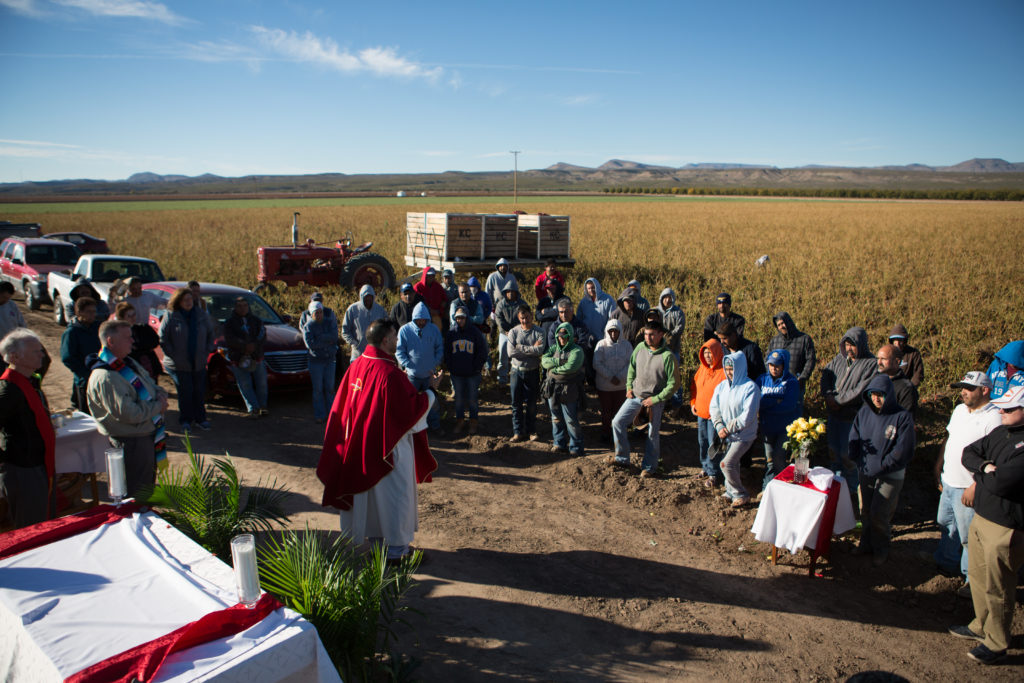
By extending ourselves to the poor, the marginalized and the suffering, we are transformed.
We can easily develop “spiritual cataracts” when we cease to extend. We become detached and indifferent, unable to repair and reverse injury, doubt, despair and darkness. “Extension” is the only antidote to this spiritual paralysis and is an indispensable adjective in our name. The Extension Society ensures that we can readily access this antidote to indifference, through our connection to the poor, marginalized and forgotten of our country.
The last indispensable adjective in our title is that we are “Catholic.” To be Catholic is to be in communion with others. To be Catholic is to find the face of Christ in the poor. And to be Catholic means that we are called to “love and serve the Lord” as a sign of hope for the world.
Catholic Extension Society has continually given us a larger sense of ecclesial communion that extends beyond the narrow geographical confines of any particular area. A Catholic Extension Society also brings us to an encounter with Christ through our connection to the poor. As Catholics, we are concerned with the well-being of others not because of who they are, but because of who we are, namely people of faith.
The adjectives and noun that form our name matter. They make us the Catholic Extension Society.
History of the Society
Catholic Extension Society was born out of the genius of Father Francis Clement Kelley, pictured below, a young pastor serving a poor, rural parish in Lapeer, Michigan, in the early 1900s.
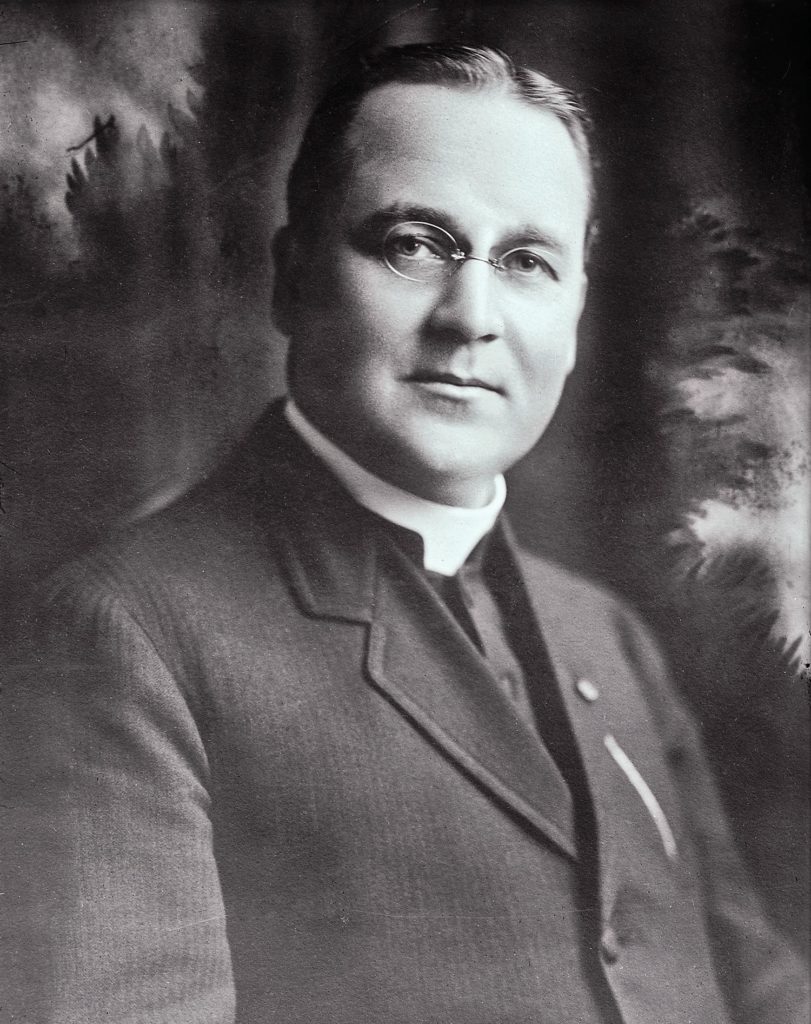
While traveling out West, he found many areas of the country where there were Catholics, but no presence of the Church. In these isolated areas, people needed help. He knew that building up faith communities in the hills and hollers, the frontiers and borderlands of our country would strengthen the Church and change the fabric of this nation.
Father Kelley articulated his vision in a stirring essay that began with the words, “I know a little shanty in the West.” He described the deplorable living conditions of a priest in Ellsworth, Kansas, as he served people on the peripheries. Catholics near and far were moved by his story and his appeal to start an “extension society” for the Catholic Church. “Extension societies” already existed in other Christian denominations, but one was lacking in the American Catholic Church. Many people started sending donations, and Catholic Extension Society was born.
As the first step, Father Kelley created a trio of mobile train cars fashioned into chapels, complete with altars, pews and confessionals. One is pictured below. They traveled westward with a priest aboard, stopping in town after town, offering Mass, baptisms, weddings and funerals.
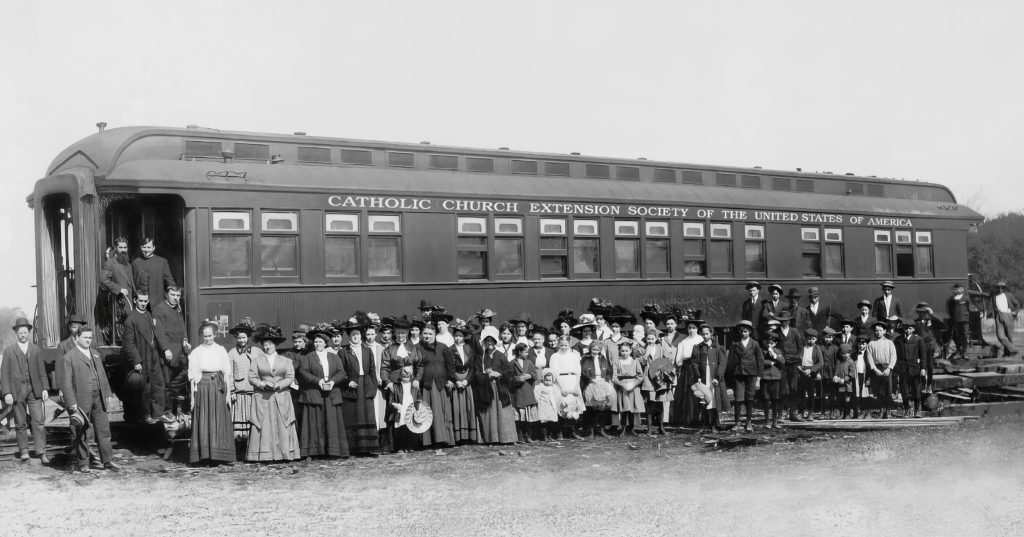
With increasing demand, Father Kelley started sending funds to these remote faith communities to build small churches, such as this frontier chapel erected in South Dakota in 1908 pictured below.
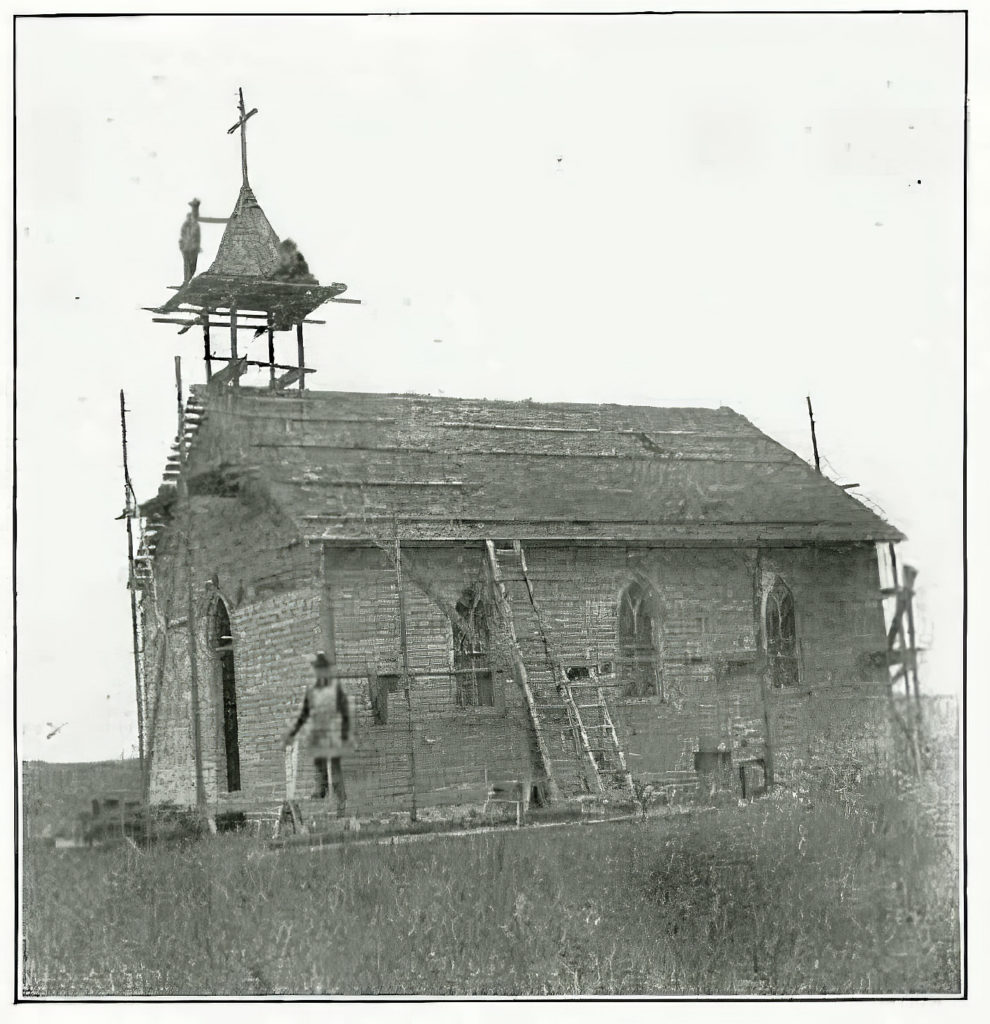
By collecting donations from Catholics in more established dioceses —typically in the East and Midwest —Catholic Extension Society soon began constructing hundreds of churches. Within a few years, it had helped build roughly half of the Catholic churches in this country at that time. Many of these churches remain vibrant centers of faith across our nation.
What began with Father Kelley’s dream to build up our Church and country continues today. Methods have evolved, but the mission is the same. We still seek to deepen and expand our commitment to Catholic faith communities by providing resources to develop leaders, ministries and facilities, while inviting more people across our country to invest in this work.
So what is old is new. The word “Society” has been officially re-added to the Catholic Extension title and logo. The noun “Society” automatically turns “Catholic” and “Extension” into adjectives. And adjectives matter.
We are a Society whose members extend Catholicism to the peripheries of our Church and country. We are Catholic Extension Society.
Catholic Extension Society works in solidarity with people to build up vibrant and transformative Catholic faith communities among the poor in the poorest regions of America. Please support our mission!


